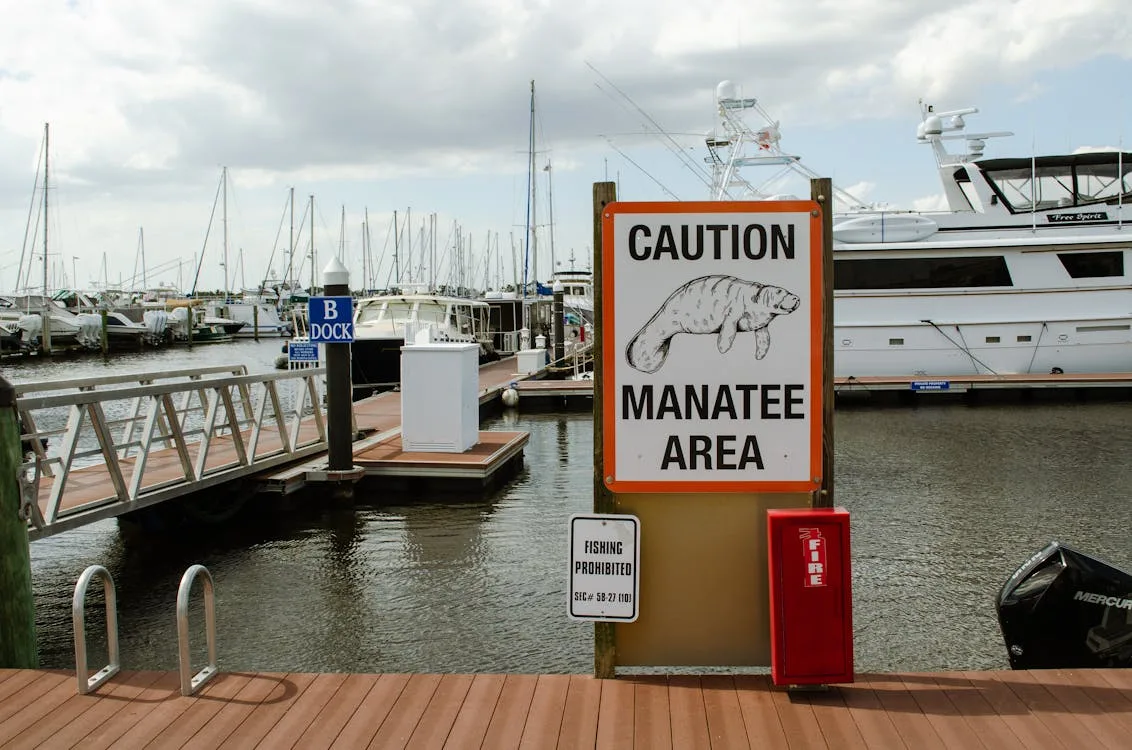Guardians of the Sea: The Legal Battle to Protect Manatees
Image source: Pexels.com
Introduction
Manatees are aquatic mammals that inhabit warm rivers and coastal waterways. They move gently and slowly. Because they consume aquatic plants, they are also referred to as sea cows. As an endangered species, manatees are threatened by numerous human activities, including pollution, climate change, habitat destruction, and boat crashes.
I’ll discuss the legal actions being taken to shield manatees from these dangers in this blog article, along with the reasons why they are crucial to the planet’s and our oceans’ overall health. In addition, I’ll offer some advice on how you can promote manatee conservation.
The Significance of Manatees
Manatees’ Place in Marine Ecosystems
In addition to being charming and calm creatures, manatees are essential to preserving the harmony of marine ecosystems. They assist in preventing eutrophication, a process that depletes oxygen and endangers aquatic life, by grazing on seagrass and other vegetation.
Because manatees are sensitive to variations in temperature and water quality, they are often used as environmental health indicators. Manatee suffering is an indicator of contaminated or degraded water, which has an impact on other species as well.
Manatees’ Cultural and Economic Significance
Manatees are also valuable economically and culturally because they draw tourists and researchers who come to see and study them. In many coastal communities, particularly in Florida, where they are the official state marine animals, manatees are an integral part of their history and identity.
How Manatees Are Protected by Law
In the US and other nations where they reside, manatees are protected by a number of federal and state legislation. Among the most significant statutes are:
Manatees and other marine mammals are protected against harassment, hunting, capture, and slaughter by the Marine Mammal Protection Act of 1972.
The 1973 Endangered Species Act places manatees under jeopardy and mandates that the government identify vital habitat, create recovery strategies, and communicate with other authorities in order to prevent damaging them.
The Florida Manatee Sanctuary Act of 1978 allows the establishment of manatee conservation zones, speed limits, and educational initiatives while designating Florida as a refuge and sanctuary for manatees.
These rules have contributed to a decrease in the number of manatee deaths and injuries brought on by human activity, particularly boat strikes, which are the primary cause of manatee deaths in Florida. They have also contributed to raising public awareness and support for manatee conservation, as well as helping to improve the habitat and food availability for these animals.
However, given the numerous obstacles and unknowns that manatees currently confront, these laws are insufficient to guarantee their survival and rehabilitation. In 2017, the U.S. Fish and Wildlife Service (FWS) reduced the endangered category of manatees to threatened.
despite the protests of numerous experts and conservation organizations who claimed the decision was hurried and based on inaccurate information.
Furthermore, the Center for Biological Diversity, Miami Waterkeeper, Frank S. González García, Harvard Animal Law & Policy Clinic, and others filed a petition in 2021 requesting that the FWS reclassify manatees as endangered and enhance their protection under the Endangered Species Act. The petition was not answered by the FWS. The unprecedented mass extinction of approximately 2,000 manatees in 2021 and 2022—largely as a result of malnutrition brought on by pollution-induced algal blooms that devastated seagrass in the Indian River Lagoon—was the basis for the petition.
Ways to Assist Manatees
More than ever, manatees want our assistance since they are in a dire predicament that could endanger their life. The following are a few ways you may help manatees and their habitat:
Observe the Laws and Guidelines When Swimming or Boating Close to Manatees
When boating or swimming near manatees, observing the laws and regulations—such as speed limits, wearing polarized sunglasses, and maintaining a safe distance—is one of the best methods to preserve them. Manatees can suffer injury and lose their innate dread of humans if they are fed, touched, chased, or otherwise disturbed.
Lessen Your Environmental Impact
Reducing your influence on the environment through water conservation, reduced use of pesticides and fertilizers, appropriate garbage disposal, and eco-friendly product selection is another method to support manatees. By taking these steps, you may lessen the likelihood of pollution and runoff harming the seagrass and water quality that manatees rely on.
Encourage Manatee Conservation Initiatives and Organizations
Additionally, you can contribute to manatee conservation efforts and groups like Defenders of Wildlife, the Manatee Rescue and Rehabilitation Partnership, and Save the Manatee Club. You may support manatee conservation through advocacy, adoption, donation, and volunteer work.
Learn about the plight of manatees and share this knowledge with others.
Lastly, you may raise awareness of the need of manatees and their predicament by educating people about them and sharing information about how to assist them. Reputable resources like the FWS, the Florida Fish and Wildlife Conservation Commission, and National Geographic can teach you more about manatees. Additionally, you can notify your friends, family, and social media followers about this blog article and other information.
In summary
Manatees are magnificent creatures deserving of our consideration and attention. Because they contribute to preserving the diversity and vitality of marine ecosystems, they are the guardians of the sea. They confront numerous dangers from human activity and climate change, which puts them in danger of going extinct. Because of this, we must use both the law and our own actions to safeguard them and their habitat. By doing this, we are benefiting not just the world and ourselves, but also the manatees.





0